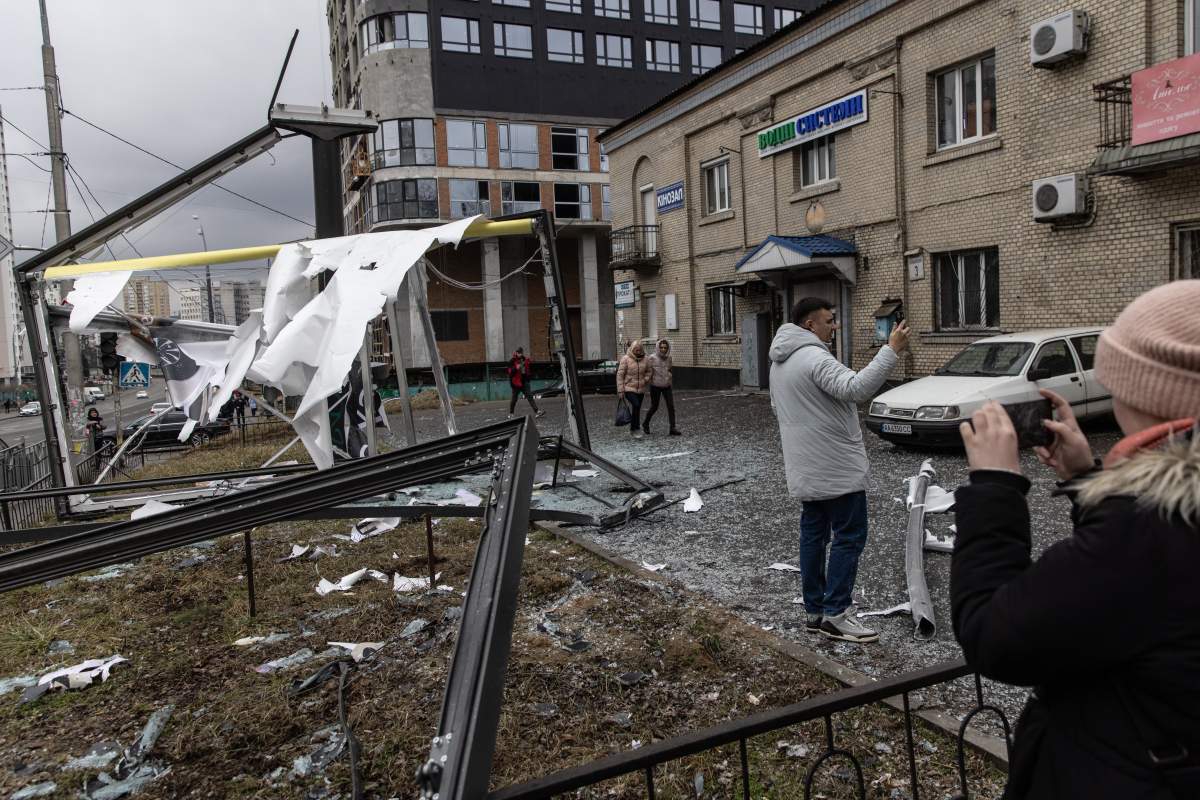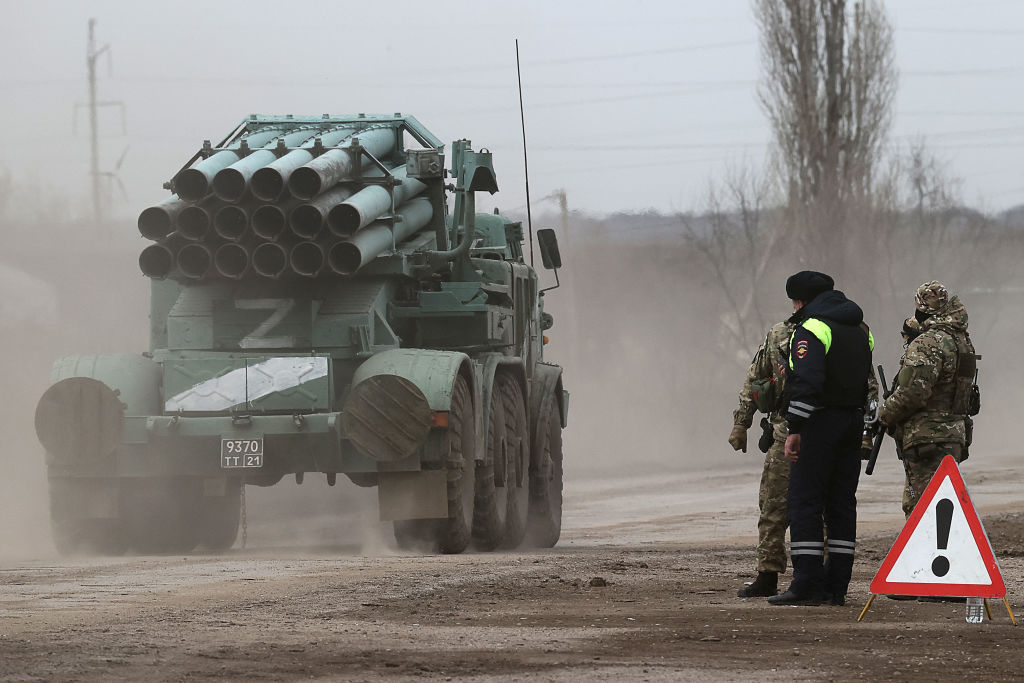Canada is targeting members of the Russian elite and major banks in a series of new sanctions after Moscow ordered a invasion of Ukraine on Thursday.

Prime Minister Justin Trudeau announced the sanctions – which are in addition to the penalties introduced Tuesday – in Ottawa hours after the invasion began.
Who is being sanctioned?

Furthermore, Canada is also sanctioning members of the Russian Security Council, including the defence, finance and justice ministers. Finally, Ottawa has ceased granting all export permits for Russia and cancelled existing permits.
“I want to be clear. Our quarrel is not with the people of Russia,” Trudeau said.

On Tuesday, Trudeau introduced the first round of economic sanctions against Russia, banning Canadians from all financial dealings with the two breakaway Ukrainian regions that Putin recognized on Monday: Donetsk and Luhansk.
Those sanctions also targeted members of the Russian parliament who voted to recognize the separatist regions, and banned Canadians from engaging in purchases of Russian sovereign debt.
How will they work?
Foreign Affairs Minister Melanie Joly called Canada’s new sanction package one of the “strongest” to be released recently.
Joly said Canada is blocking any exports to Russia that require permits, while also cancelling existing permits and denying any new applications for exports. Joly said the sanctions will impact aerospace and technology companies, including tech companies in the minerals sector.

The companies need to have permits to send their goods to Russia, Joly added, saying the permit cancellations are worth more than $700 million.

Get daily National news
“We call on Russia to stop its attack immediately and to return to the path of dialogue and diplomacy,” Joly said.
“This madness has to stop.”
Joly promised more sanctions will come.
Why are sanctions being imposed?
Trudeau said the new sanctions, which are also being imposed on Russian elites, will limit Putin’s “ability to continue funding this unjustified invasion.”

Since Russia annexed Crimea in 2014, Trudeau said Canada’s trade relationship with the country has decreased significantly. But the sanctions being imposed by Western allies together will have a serious impact, he added.
“The cumulative impact of the unity in the West in standing strong on these sanctions is going to be significant,” he said.
“Sanctions work.”
For weeks, western nations have promised devastating sanctions on the Russian economy if Putin launched a military invasion in Ukraine. The tactic has been seen as a way to deter Russia from pursuing further military action against its neighbour.
G7 leaders met on Thursday and said in a joint statement they are “bringing forward severe and coordinated economic and financial sanctions” against Russia.
Among the nations delivering new sanctions is United Kingdom. The U.K. is freezing the assets of all major Russian banks in Britain, including VTB Bank, Russia’s second-biggest bank, Prime Minister Boris Johnson said Thursday. Britain also plans to bar Russian companies and the Russian government from raising money on U.K. markets.
The U.K. will also ban the export of a wide range of high-tech products, including semiconductors, to Russia and will bar the nation’s flagship airline, Aeroflot, from landing at U.K. airports.
‘Now is the time for us to be strong’
Back in Ottawa, Deputy Prime Minister Chrystia Freeland, who is Ukrainian-Canadian, said history will not remember Putin kindly.
“Today, he cements his place in the ranks of the reviled European dictators who caused such carnage in the 20th century,” she said.
Canada is home to the third most populous Ukrainian community outside the two countries embroiled in the ongoing conflict.

During her speech, Freeland spoke directly to Ukrainian-Canadians and urged them to be together during this time.
“Now is the time for us to be strong as we support our friends and family in Ukraine. Now is the time for us to remember,” she said.
During the announcement, officials said Canada has arranged for the safe passage of any Canadian citizens, permanent residents and their families still in Ukraine through land borders with Poland, Slovakia, Hungary, Romania and Moldova.
The federal government is also prioritizing immigration applications for Ukrainians who want to come to Canada, and is launching a dedicated telephone line for anyone who has any urgent questions about immigrating from Ukraine.

Joly, meanwhile, highlighted the Russian aggression over the past few weeks that led up to the invasion of Ukraine.
She said Russia “lied,” had been gearing up for this moment, and cannot hold anyone accountable but itself.
“Russia is solely responsible for this crisis. They have chosen deception, intimidation and a manufactured crisis based on lies and false flag operations,” she said.
“Today, the Russian regime is challenging the world order that has kept (us) safe since the Second World War.”
— with files from Ahmar Khan, The Canadian Press and The Associated Press.










Comments